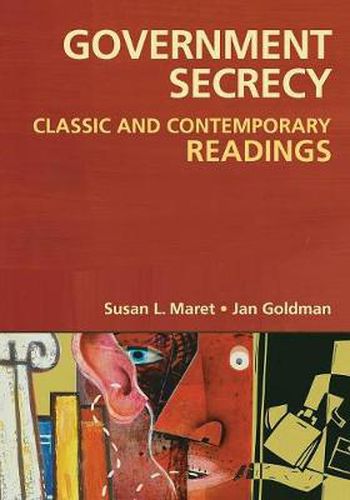Readings Newsletter
Become a Readings Member to make your shopping experience even easier.
Sign in or sign up for free!
You’re not far away from qualifying for FREE standard shipping within Australia
You’ve qualified for FREE standard shipping within Australia
The cart is loading…






Government Secrecy presents the best that has been thought and written on the subject, including history and philosophy, theory and practice, justification and critique. Through readings, which range from Georg Simmel on secrecy and Max Weber on bureaucracy and secret-keeping, to post-9/11 concerns regarding freedom of information and presidential secrecy, it enables readers to explore the issues and questions that surround the government’s right to keep necessary secrets-or not.
This collection, and the diverse perspectives it represents, will engage students and other interested parties in a discussion of the benefits-and dangers-of government secrecy. The collection is designed to generate questions regarding historical accuracy of government information, information ethics, professional neutrality, ownership of information, public right to information, national security, and transparency. The essays explore the criteria and conditions for government secret-keeping, as well as contributing to public and academic discussion of the role of secrets in democracies.
$9.00 standard shipping within Australia
FREE standard shipping within Australia for orders over $100.00
Express & International shipping calculated at checkout
Government Secrecy presents the best that has been thought and written on the subject, including history and philosophy, theory and practice, justification and critique. Through readings, which range from Georg Simmel on secrecy and Max Weber on bureaucracy and secret-keeping, to post-9/11 concerns regarding freedom of information and presidential secrecy, it enables readers to explore the issues and questions that surround the government’s right to keep necessary secrets-or not.
This collection, and the diverse perspectives it represents, will engage students and other interested parties in a discussion of the benefits-and dangers-of government secrecy. The collection is designed to generate questions regarding historical accuracy of government information, information ethics, professional neutrality, ownership of information, public right to information, national security, and transparency. The essays explore the criteria and conditions for government secret-keeping, as well as contributing to public and academic discussion of the role of secrets in democracies.